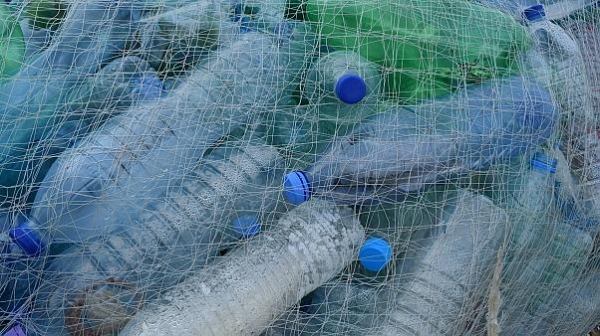Microplastics are ‘omnipresent’ in European rivers, scientists say

Copyright Pixabay/Matthew Gollop
Researchers have found that microplastics are omnipresent in European rivers.
Scientists found the pieces — less than five millimetres in size — in 100% of water samples taken from nine major European rivers from May to November.
The project was led by the Tara Ocean Foundation in partnership with 16 laboratories and coordinated by the French National Centre for Scientific Research.
“This first observation sheds new light on our vision of plastic pollution at sea,” said the French centre’s researcher Jean-François Ghiglione who was also the scientific director of the mission.
“We have long thought that the transformation of plastics into microplastics took place at sea, under the effect of the sun and waves. In fact, the process also seems to occur in rivers and their watershed.”
The team collected 2,700 samples from 45 sites on the Thames, Elbe, Rhine, Seine, Ebro, Rhone, Tiber, Garonne, and Loire rivers. Four of the nine rivers in the sample are the largest ones in France.
Microplastics can come from microbeads in cosmetics and toothpaste or from fragmented plastics. The tiny plastics often absorb pollutants and become highly toxic.
The scientists said the samples validated their hypothesis about the ubiquity of microplastics in European rivers.
A recent report from Project Mediterranean found that microplastics level are rising in the Mediterranean Sea. The World Health Organisation also warned in August that microplastics are in drinking water as well.
The Tara Ocean Foundation says recycling plastic and reducing the additives in manufacturing plastic are methods of tackling the problem.
The samples the researchers took will now be used to determine the quantities of waste. The French National Sequencing Centre in Evry will look at the DNA of organisms living on the plastic particles.
